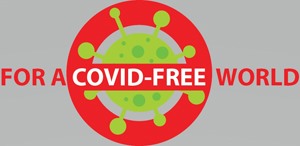 Society
Society

Việt Nam, especially the current hotspot HCM City, needs to maintain stringent social distancing measures and stress that each individual and family plays a decisive role in reducing infection chains, overseas-Vietnamese experts said at a webinar on August 12.

|
| People at a vaccination site at Nguyễn Tri Phương hospital in HCM City’s District 5. VNS Photo Bồ Xuân Hiệp |
Bồ Xuân Hiệp
HCM CITY — Việt Nam, especially the current hotspot HCM City, needs to maintain stringent social distancing measures and stress that each individual and family plays a decisive role in reducing infection chains, overseas-Vietnamese experts said at a webinar on Thursday.
Dr Vũ Ngọc Khuê, a Vietnamese-American, said the country’s pandemic epicentre should be able to contain the latest outbreak that began in late April within the next four weeks.
“Four weeks would be enough for the city to contain the spread. The first two weeks will detect symptomatic FO (COVID patients) cases for quarantine, while the next two weeks will detect cases that have had longer incubation periods” and may not be showing symptoms, he added.
Severe cases will need more time for treatment and recovery in a hospital or at isolation facilities, he said, adding that the city should focus on critically ill patients to minimise the number of deaths.
In addition to having medical staff fully equipped with proper equipment, all resources including military forces should be mobilised for the fight.
Trần Trọng Hùng, a Vietnamese-Polish man who is vice chairman of the Vietnamese Community in Poland, said that the COVID-19 Prevention and Support Committee in Poland developed a COVID-19 prevention manual, stressing the role of each individual and each family.
All people, including those fully vaccinated, must strictly implement measures such as hand washing, keeping a distance, wearing a mask, and limiting gatherings. People should contact medical staff immediately to have a COVID test when they have symptoms such as fever, cough, shortness of breath, sore throat or headache.
To quickly recover, you should practise breathing exercises to support the lungs, and keep a thermometer, blood pressure monitor and oximeter at home.
Testing is key
Experts said that even with the promising prospects of COVID vaccinations, it will take some time for vaccines to be delivered to the general population.
The surge of the more transmissible Delta variant has made testing more vital, even among vaccinated people. Testing, tracking, tracing and isolating quickly, massively and smartly are all needed to prevent future rebounds of infections following social distancing measures.
Dr. Nguyễn Đức Thái, a Vietnamese-American and co-founder of TransMed-VN forum, said that Việt Nam has conducted three main kinds of testing. The first is an antibody or serology test, a blood test that looks for signs of a previous infection to help understand the pervasiveness of the disease in communities.
The second is a rapid antigen test, which can deliver results in less than 15 minutes, a less accurate alternative but one that is very good at identifying when people are infectious. The third is the more accurate PCR tests, which requires a laboratory, according to Thái.
With the delta variant surging throughout the world, more testing is paramount.
Dr Thái said the city could use a highly sensitive and cost-effective test that uses artificial intelligence to detect pathogens (called AIMS RT-PCR technology) as recommended by Dr. Hồ Hữu Thọ of the Hà Nội Military Medical Academy.
The test, which can take a pooling sample of 100, is very accurate and suitable for large-scale testing or city-wide testing, he noted.
Japanese-Vietnamese Trần Ngọc Phúc, president of the Japanese medical equipment firm Metran, and chairman of the Association of Vietnamese in Japan, said the city should buy low-cost ventilators that are easy to use so that doctors at all levels can safely use them.
The city should also buy more CPAP machines, oxygen generators and saturation oximeters to meet the needs of patients treated at home to reduce the transfer of patients to hospitals, he added.
An online monitoring system for patients with unstable medical conditions could be used, and mobile medical teams should be set up to better diagnose and take care of patients at home.
Dr. Võ Toàn Trung, Vietnamese-French, said the city needed to prepare for a worst-case scenario, especially if the rate of positive cases exceeds the capacity of the healthcare system.
Dương Anh Đức, vice chairman of the People’s Committee, said the city would consider all of the recommendations and expressed gratitude to overseas Vietnamese, including those at home and abroad, for providing medical equipment and essential items.
After successfully containing the virus in 2020 and early this year, the country now faces a serious outbreak, with HCM City and southern provinces accounting for most new infections. HCM City, the largest hotspot, has recorded more than 137,000 cases since the beginning of the fourth wave in late April.
Việt Nam recorded 9,667 new COVID-19 infections on Thursday and a further 326 people died of COVID. The new cases take the total number of infections to 246,568 and the total number of deaths to 4,813.
The country has administered 12,098,821 doses of vaccines. A total of 1,092,700 people have received two doses.
The webinar was organised by the State Committee for Overseas Vietnamese Affairs under the Ministry of Foreign Affairs and the Committee on Overseas Vietnamese in HCM City. — VNS

|




